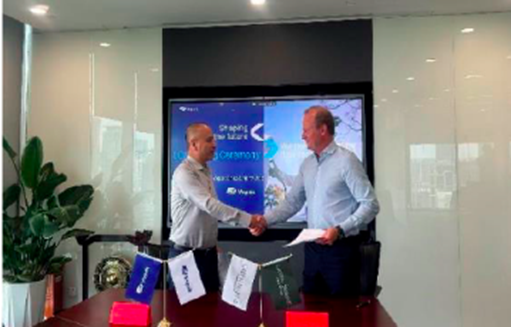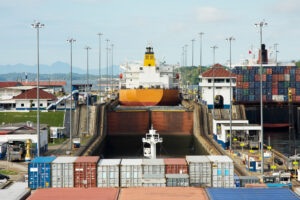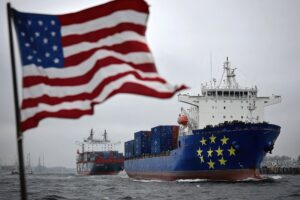Danish-based Green Marine Fuels Trading has announced a strategic collaboration with Dutch headquartered Royal Vopak Terminals in the key ports of Shanghai Caojing and Tianjin Lingang, China.
This milestone agreement marks the next phase of methanol supply chain infrastructure expansion for Green Marine Fuels Trading, securing necessary port storage capacity to accommodate projected supply of green methanol from Chinese business partners.
Green Marine mentions that it will also be undertaking a similar cooperation plan with Vopak Singapore as well.
As one of the world’s leading third-party terminal storage operator, Vopak aims to help the world flow forward by accelerating its portfolio investments towards new energies and sustainable feedstocks.
Vopak (China) Management Company is the management company of Vopak Group in China and North Asia, which has already established terminals with a capacity of more than 3 million cubic meters in China’s major coastal provinces.
In the process of energy transition of maritime industry, Vopak China expects to leverage existing facilities, supply chain expertise and terminal network to help business partners and clients accelerate the low-carbon energy transition.
The LOI shows the desired collaboration between Vopak China and Green Marine, for the purpose of Green Marine securing storage facilities for green methanol in the ports of Tianjin Lingang terminal and Shanghai Caojing terminal from Vopak China.
Gavin McGrath, director at Green Marine, said: “This is an important milestone in the evolution of GREEN MARINE FUELS TRADING and further underscores our preparedness to supply green methanol to the imminent green transition within the shipping industry.
“Our leadership in the global methanol marine fuel sector uniquely positions us to bridge the gap between methanol producers and buyers, with storage and supply infrastructure being a crucial link in the chain. We eagerly anticipate leveraging our expertise in these domains to enrich the Shanghai and Tianjin green port and marine fuel ecosystems.”



